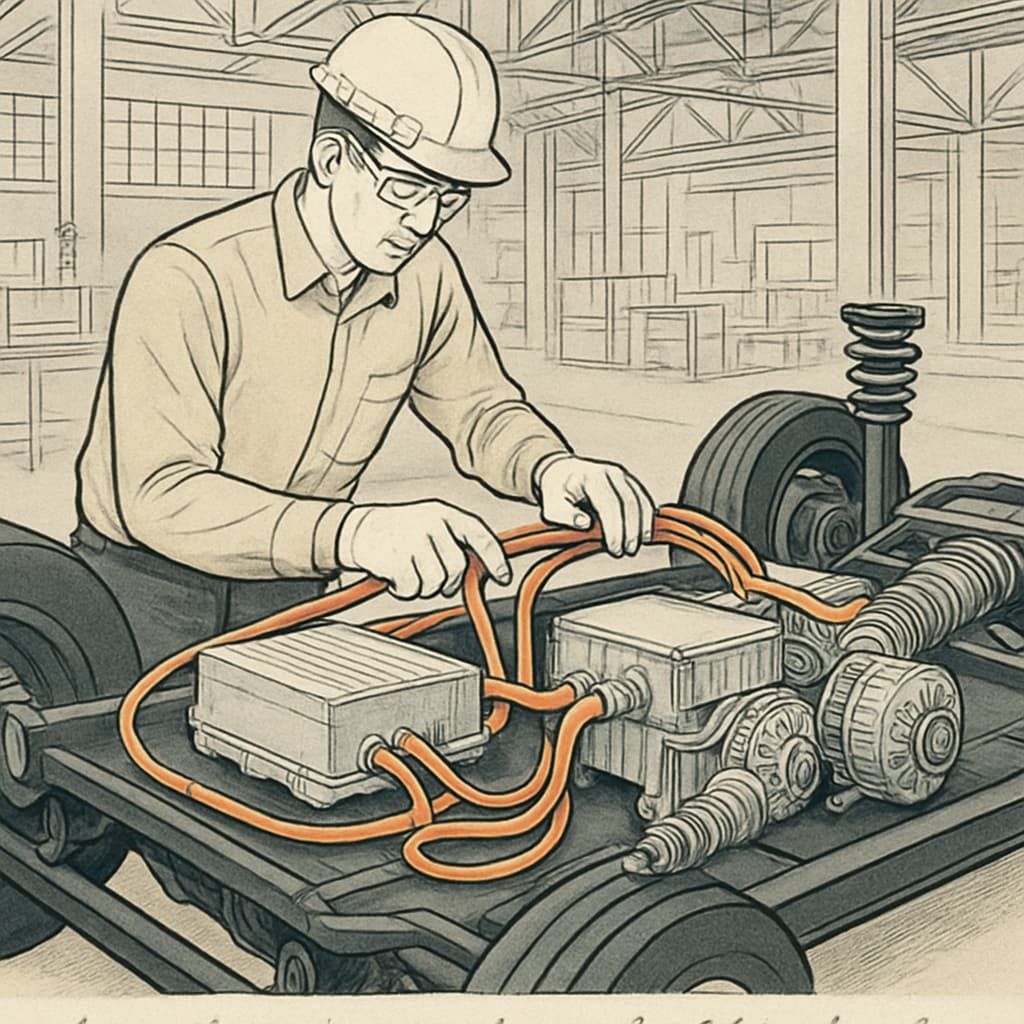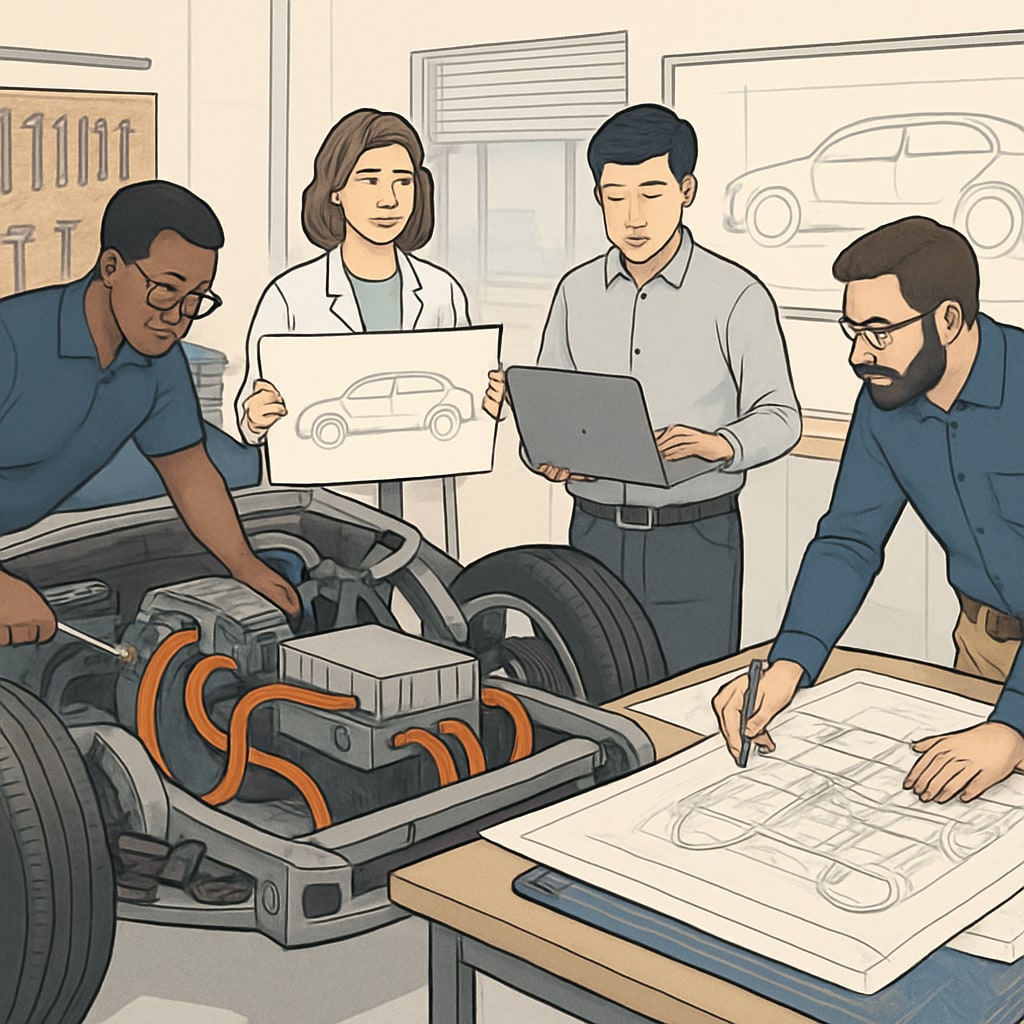In today’s rapidly evolving industries, the intersection of electrical technology, automotive careers, and professional development has created a wealth of opportunities for those with cross-disciplinary skills. As the automotive industry accelerates toward electrification and advanced technologies, the expertise gained through an electrical apprenticeship is becoming a cornerstone for career growth. This article explores how an electrical apprenticeship can unlock new possibilities in the automotive sector and provides insights into why this combination of skills is so valuable in today’s job market.
The Convergence of Electrical and Automotive Industries
The automotive industry is undergoing a profound transformation, driven by the rise of electric vehicles (EVs), autonomous driving systems, and smart connectivity. These advancements demand specialized skills in electrical engineering, making the overlap between electrical and automotive sectors more critical than ever. For example, working on EV battery systems or advanced driver-assistance systems (ADAS) requires deep knowledge of electrical circuits, energy management, and system integration.
An electrical apprenticeship provides hands-on experience and technical expertise that directly align with these automotive advancements. Apprentices who master concepts such as wiring, circuits, and energy systems often find themselves uniquely qualified for roles in EV manufacturing, powertrain development, and even automotive software engineering.

Key Skills Gained from Electrical Apprenticeships
Electrical apprenticeships equip individuals with practical and theoretical knowledge, preparing them for the complexities of the automotive sector. Below are some of the key skills gained during an electrical apprenticeship that make a significant impact:
- Understanding of Power Systems: Essential for working on EV batteries, chargers, and regenerative braking systems.
- Problem-Solving Abilities: Diagnosing and repairing electrical faults in automotive systems.
- Knowledge of Safety Protocols: Ensuring compliance with electrical safety standards in high-voltage automotive applications.
- Technical Communication: Collaborating with multidisciplinary teams to develop integrated automotive solutions.
These skills not only open doors to automotive roles but also make candidates more adaptable to future technological shifts in both industries. Learn more about electric vehicles on Wikipedia.
Career Opportunities in the Automotive Sector
As the demand for electric and autonomous vehicles grows, so does the need for professionals with electrical expertise. Below are some promising career paths for those transitioning from electrical apprenticeships:
- EV System Technician: Specialize in the assembly and maintenance of electric powertrains and battery systems.
- Automotive Electrical Engineer: Design and optimize electrical components for vehicles, including sensors, motors, and wiring systems.
- Energy Management Specialist: Focus on improving the energy efficiency of automotive systems.
- Autonomous Vehicle Technician: Work on advanced control systems, including radar, lidar, and GPS integration.
These roles not only offer competitive salaries but also provide opportunities for long-term career growth in a cutting-edge field. For more insights, visit Britannica’s article on electric vehicles.

Why Cross-Disciplinary Skills are the Future
Employers increasingly value professionals who can bridge the gap between electrical and automotive technologies. Cross-disciplinary expertise enables employees to contribute to innovative projects, such as integrating renewable energy into vehicle charging systems or developing AI-powered diagnostics for automotive maintenance. This versatility not only enhances job prospects but also fosters resilience in a constantly changing industry landscape.
Moreover, as environmental regulations tighten and consumer demand for sustainable mobility grows, individuals with both electrical and automotive skills will be at the forefront of shaping the future of transportation.
Conclusion: Investing in Your Career Development
An electrical apprenticeship is more than just a stepping stone; it’s a gateway to a world of opportunities in the automotive industry. By combining technical expertise with practical experience, apprentices can position themselves as indispensable contributors to this dynamic field. Whether you aspire to work on cutting-edge EV technology or lead innovations in autonomous driving, a strong foundation in electrical engineering will give you the edge you need.
As industries continue to converge, now is the perfect time to invest in cross-disciplinary skills that promise a rewarding and secure career. The future of transportation is electric—and you can help drive it forward.
Readability guidance: This article maintains a balance of technical detail and readability. Short paragraphs, bullet points, and clear transitions ensure accessibility while preserving a professional tone.


